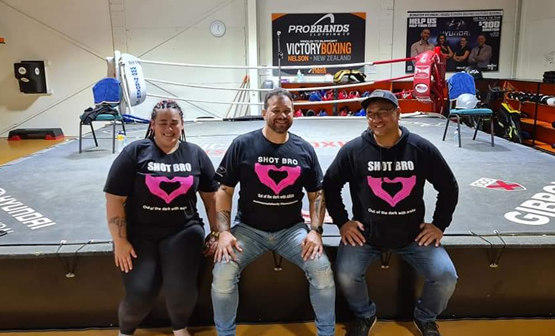Meg Robertson and Carol Whitfield are Te Piki Oranga’s two nurse practitioners, both based out of Te Piki Oranga’s offices in Bishopdale, Whakatū. They are part of a small (300-strong) but growing group of nurse practitioners now practicing around Aotearoa.
Meg is Pou Whirinaki Hinengaro, a nurse practitioner specialising in adult mental health; Carol Whitfield is a nurse practitioner who takes care of whānau members with chronic and physical health issues.
Nurse practitioners - highly qualified
Nurse practitioners are highly skilled, and have advanced education, clinical training and demonstrated competency. To qualify, they must have five years experience as a registered nurse and a Master’s degree in clinical practice. Once qualified, they have the legal authority to practice beyond the level of a registered nurse. This means they can diagnose health complaints and prescribe medications.
Visiting you in your whare or at TPO
While Meg and Carol will see people at Te Piki Oranga’s sites, they prefer to visit whānau in their own whares wherever possible, because it helps them to develop a more holistic treatment plan.
They have travelled as far as Golden Downs and Murchison, southwest of Whakatū, and to Rai Valley in the east.
However, Carol stresses that it’s up to whānau to decide where they want to meet, as they may wish to come into Te Piki Oranga and speak privately about a health concern.
Preventing something turning nasty
"My role is often about trying to prevent and manage chronic health issues; about trying to avoid something turning into a nasty, acute health condition that may require hospitalisation or worse," she says.
A lot of both Meg and Carol’s mahi is also about bridging and navigating the health system. They often accompany whānau to appointments.
"It’s about being there as a support person and ensuring the right questions get asked," adds Meg. "Whānau might not ask the hard questions because they fear being judged."
Carol explains that nurse practitioners do not replace the role of a general practitioner. "The people we work with often have multiple health concerns and I really encourage them to have a GP who is really focused on the whole of their health. We work alongside the GPs."
Working together, holistically
While Meg and Carol work independently, they will refer whānau to each other when needed.
"We treat our whānau holistically," Carol explains. "Managing an illness doesn’t come without stress. It’s about trying to identify when that stress is over and above what you would expect, or when another mental health issue hasn’t been identified or well managed in the past, and referring people them to Meg, because her strength is in that. My strength is more in physical health. But we both work across both areas."
In the mental health area, Meg says a lot of the whānau she works with are often either vastly over-treated or under-treated; many of those she supports have undiagnosed conditions.
"I do work in conjunction with their GP but often whānau have only got 15 minute GP appointments, whereas I’ll sit down with them for an hour and a half. We’ve got the time; time is a great luxury. When I first trained as a nurse practitioner, everyone was very excited about being able to prescribe medications but it’s actually a really small part of what I do. Medication is only one part of the solution, therapy is another, then good sleep, healthy eating and walking are all important."
Carol says it's about having conversations around lifestyle and optimising medications or at least talking through the medications so they understand why they’re taking them, especially when they don’t feel any better to begin with.
"Medications for diabetes or blood pressure, for example, don’t always make you feel any better. It’s not like taking a panadol for a headache. Prescribing is often about optimising treatment or reducing how many are taken."
When she’s not working, Meg loves spending time with her two children, her dog and other whānau members. She plays ultimate frisbee, enjoys swimming and running and loves cooking.
Carol lives with her husband on a walnut orchard. She enjoys cooking, sewing and other creative projects. She’s even made a pair of shoes!










